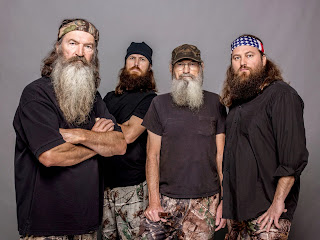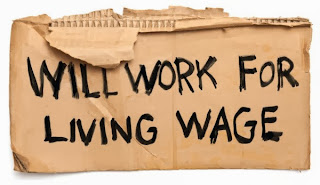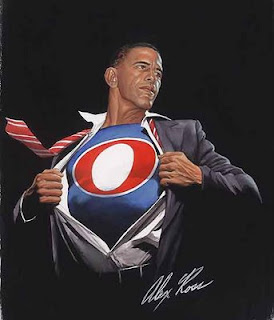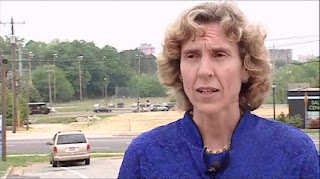TRUMP vs HILLARY: WOMEN VOTERS ARE NOT MONOLITHIC
The former secretary of state has a shot at becoming the first woman in the White House.
But young women say that's not their priority — and are going for Bernie Sanders instead.
Sen. Bernie Sanders is a 74-year-old presidential candidate who's attracting a ton of support from people in their 20s, women included. He won the New Hampshire Democratic primary by a landslide, just a week after losing in Iowa to former Secretary of State Hillary Clinton by the narrowest of margins, thanks in large part to the twentysomethings who voted for him.
In New Hampshire, CNN exit polls showed he won over 83 percent of voters between the ages of 18 and 29. Clinton only won with the over-65 set. Iowa was pretty similar — 84 percent of voters between the ages of 17 and 29 went for Sanders, according to CNN entrance polls, while Clinton only had the edge among voters 45 and older.
Those numbers may not be unique to Iowa and New Hampshire — and they're not just "Bernie bros." A USA Today/Rock the Vote poll released on Jan. 14 showed that Sanders held a 19-point lead over Clinton among Millennial women who identified as Democrats and independents. A poll conducted by Monmouth University on Jan. 19 showed that age, not gender, was a better predictor of who supports Clinton versus Sanders.
Cosmopolitan.com talked to four college students who have been vocal supporters of Sanders on their campuses about the issues that really matter to them — and why they don't see the urgency in electing America's first woman president.
What issues do people on your campus care about the most?
Elizabeth Lee, 21, junior at Middlebury College and head of College Students for Bernie: Student loans are probably nationally what I think get people the most excited. Environmental activism is big at Middlebury, and the idea of taking down Wall Street is appealing as well. That is the most appealing part of Bernie's campaign to me, is to take down the idea of having big institutions that control your life and limit your choices about what kind of career you want to pursue.
Isabel Youngs, 23, senior at the University of Nevada at Reno: One of the most important issues for college students right now is a federal minimum wage. It's a persistent problem for us college students. Even if [college] weren't free, raising minimum wage would change how college students live. I have a lot of friends who had to drop out of school because the extra five to six hours a week would make a difference at work. If it were $15 an hour, it wouldn't make a difference. I have friends who work in the food service and they go to work with the flu because they literally can't afford not to. I see the federal minimum wage as a big one.
What other issues matter to you personally?
Youngs: For me, one of the biggest things is health care. That might be more because I'm an LGBT student, and I've also seen my family grow up without health care. My friends and I, we often need more medical care than most of the community because of surgeries, hormone therapy, and especially mental therapy and counseling. I have friends who can't access any of that stuff. They're having horrible mental health crises, getting no help to get the health care they need.
Megan Taylor, 20, sophomore and head of University of South Carolina for Bernie: Student loans matter a lot to me because in the current economy, it's essential to have a degree. It's not really an option anymore if you want to have social and economic mobility. I don't think that we can require something of people in the job market and also ask them to pay for it no matter their circumstances. I'm also very passionate about social issues; I'm a bleeding-heart liberal. I'm interested in social welfare, food stamps, making health care accessible to people, reforming the prison system and the judicial system so that it's more equitable and produces the results. Let's think of people first and think of how to pay it later. As much as I respect moderate candidates and know that they are necessary for compromise, I'm also very liberal. My dad's Canadian and socialism is in my blood. I very much love the socialist parts of our government that do very well for us — roads, bridges, all those things that are created through the government.
What makes you support Bernie Sanders?
Lee: I support Bernie because I think that he takes very strong policy stances, which I really admire. He's unafraid to say what he thinks, and what he says is reasonable and very human-focused. He doesn't have strings attached to Wall Street and different interest groups. He speaks his mind and caters to what the actual majority wants and needs.
Emmy Ham, 22, senior at the University of New Hampshire: I think that the main thing we all have in common is we really want a change in our political system. We want to go against mainstream politics and Bernie represents that for us. When I heard about his platform, I really identified with that pretty quickly. I jumped on board. He exposed so many things about our political system that I have been frustrated with for a very long time. I think that's where it stems from.
Youngs: I don't want to see us getting involved globally as a global power. I want to see us disengage from that and fix our own stuff first. Globally there are a lot of problems, but at the same time, you know, no one president has made all the foreign policy decisions singlehandedly. They hire a Cabinet, they have people who are talking to them constantly about what the best form of action is, and I trust Bernie and his choice in the Cabinet that he picks to help him with those foreign policy issues.
Lee: Right now, for me at least, domestic policy is the most important. Making sure that income inequality doesn't spin out of control is something that's way more important to me than the quagmire in Syria, and things like that. I think that with Syria, there's no good choice for the U.S. Whatever we do is going to damage Syria and the people there to some degree. But there are clear meaningful steps that we can take in domestic policy that can really better people's lives.
Sanders is often criticized for being a single-issue candidate, focusing on the economy and campaign finance, but not other issues. How do you respond?
Taylor: I will never say that Bernie Sanders is not on message. But I think the reason Bernie Sanders seems like a single-issue candidate is because he is looking at that issue so holistically. He's looking at the economy in this broad sense that involves everything from education to health care to racial justice to criminal justice. He wants to fix the economy by fixing all of these other individual problems that are so connected.
Youngs: I'd never put the economy over any other things like social issues. I definitely do not think that Bernie Sanders is a single-issue candidate. If he does focus on the economy, he focuses on all aspects of the economy, including prison reform and making sure to get private prisons off the table and making sure that you legalize or decriminalize marijuana so you're not overcrowding prisons. It might have something to do with the economy, but it also has to do with social issues.
What do you like about Sanders personally?
Youngs: Bernie doesn't pander or patronize my vote. He doesn't think, How can I get young people to vote for me? He thinks, How do I make this world better for young people? It matters that he has a strong voting record that reflect those values. For me, Bernie is not for sale, which, I mean, that might be a kind of tried-and-true cliché of his campaign, but it means something to me. It means that he wouldn't turn around and abandon me and my cause and my people just for a political setup.
Taylor: I find Bernie very genuine, and I think one of the appeals of him is that he's very straightforward to the point of being sort of brusque at times, but very straightforward and genuine, and people appreciate that. The genuineness of Bernie, who he is as a person as well as a politician, really appeals to me as well as individual policy things that would really even the playing field for Americans.
What don't you like about Hillary Clinton?
Lee: I wouldn't say I dislike Hillary Clinton. I wouldn't necessarily be against the idea. She doesn't make me very excited about politics. I just don't really know where she stands on issues because she changes a lot, in terms of what the issues are. She doesn't really address them in her speeches. If you look at the debates, she drills other candidates on issues, but she doesn't really take a stance on what her position is. Which I think makes me a little bit skeptical and unable to support something that I don't really know what it is.
Youngs: I think Hillary's values have a price tag. In 2017, I don't think a corporate interest would be able to walk up to Bernie Sanders and say, "Here's $1 million, now's not the time for a social movement." She has the capacity to compromise if she gets [certain things she wants,] which is political sharpness, but that desperation scares me.
Taylor: I was very much ready for Hillary, but as you look into her individual policy decisions, her various campaigns in the past, I had grown, sort of as most people do, less enchanted with her and with the political system in general. When she says she's an outsider in the political process, not like the Democratic candidates, and not an establishment politician, it's silly. Hillary has spent so much time in the political system, she's always a politician first, and people can tell when she's not being genuine.
Ham: I think it's tricky. I get asked a lot why I don't support Hillary, and I don't think it's that I don't support her. I just truly identify with Bernie more, and I think he's more authentic, and he is really fighting for everybody and not just a select few.
Does anyone question your feminism because you're not voting for Clinton, who could be the first woman president?
Lee: I think it did make me hesitate a little bit, because I obviously want to see a woman in the White House as the president. But I think that we need to prioritize the issues before we can prioritize who this person is. In the future, there will be more women candidates running, and I can imagine a woman coming into the White House. It doesn't necessarily have to be Hillary Clinton; it can be someone else.
Youngs: I haven't been challenged that much in my feminism. Much of my feminist friends are strong Bernie supporters. I think there's an element of truth that we desperately need a woman in the White House. If it were Elizabeth Warren or Barbara Lee, versus Bernie Sanders, I wouldn't hesitate for Senator Warren or Congresswoman Lee. But I strongly believe that Bernie's values align more with mine and that I'm going to vote more in my interest more so than in symbolism. Eventually we'll find someone we feel comfortable representing us, but it's just not her.
Taylor: As much as I would like to see a woman president, and as happy as I would be with Hillary Clinton as president, I think Bernie Sanders's policies will do more for women, or at least the things that he's focusing on. Because women don't just need reproductive rights and a decrease in the pay gap, and they don't just need to see women represented in politics; they also need the same things that everybody else needs. That's really why I lean Bernie. Not that I fault any feminist who votes for Hillary.
Ham: I think that our generation is very progressive, male and female. When looking at the candidates, we want to see somebody who's not only looking out for women's rights but also for black people, disabled people, and people of all types of minorities. Bernie fights that system in one fell swoop by trying to improve our economic system, which is the primary oppressor of these people.
Do you think the symbolism of Clinton's gender matters?
Youngs: I actually only know of one woman who I consider politically competent who supports Hillary, and I think that comes from the belief that she's more of a symbol than that she agrees with her policies. I've seen [Clinton] support the Iraq War, Wall Street bailouts, the TPP, Keystone XL for a while, I've just seen all this stuff that I can't see her as a symbol anymore. I don't think she stands for me; I don't think she represents women. There are some things I will ignore for the symbolism of having a woman in office, but there's just too much.
Taylor: I very much respect Hillary as a woman, and I think she's one of the great examples of powerful women in politics. As much as I would like to see a woman as president, I don't think it particularly solves problems because I obviously believe in the glass ceiling, but I don't think that the glass ceiling is broken once and everyone soars through and suddenly you have a female president every other election. In high-up offices like that, you have a female president and it cracks the glass ceiling, but there's still a lot more work to be done then; it's still not easy to get through.
Ham: I definitely identify as a feminist, and when I first started reading into the campaign and candidates, that was my one reluctance because I do want to see a female president. I think it's time for one in the United States, but I just don't think it's Hillary Clinton. For me, what's just as important is having the right female candidate, not just a female candidate. I just see Clinton as kind of another cog in the political machine. And I would like to see somebody who not only represents feminist rights, women's rights, but the rights of everybody. And I think that Bernie Sanders more broadly encompasses social justice for the majority of minorities and oppressed people in the United States.
What do you foresee happening in the general election? Regardless of whether he wins, what's the future for Bernie's "political revolution"?
Ham: I would say that Bernie is making fundamental change right now in how we elect candidates. In the beginning and even now, it's hard to see it happening, but there really is a movement going on. And once people start seeing his progress, and how many people are following him and joining his movement, then I think it's going to change, and it already has among youth. So of course the unknown is a little bit intimidating for some people. I'm interested in seeing that the United States is really ready for that change, and I really hope we are.
Youngs: I really think that both candidates are so much better than anything the Republican candidates have to offer. I really resent the Hillary vs. Bernie rhetoric. It's so much more nuanced than that and there's so much that goes into it, and I really want to see young people go out and vote in the House and Senate.
A lot of people just check Bernie or Hillary, and walk out of the polls and they don't consider the cause and effect of not researching all candidates available.
When Bernie Sanders talks about a political revolution, he means more than just him.
He means everyone across the board.







































































.jpg)























No comments:
Post a Comment